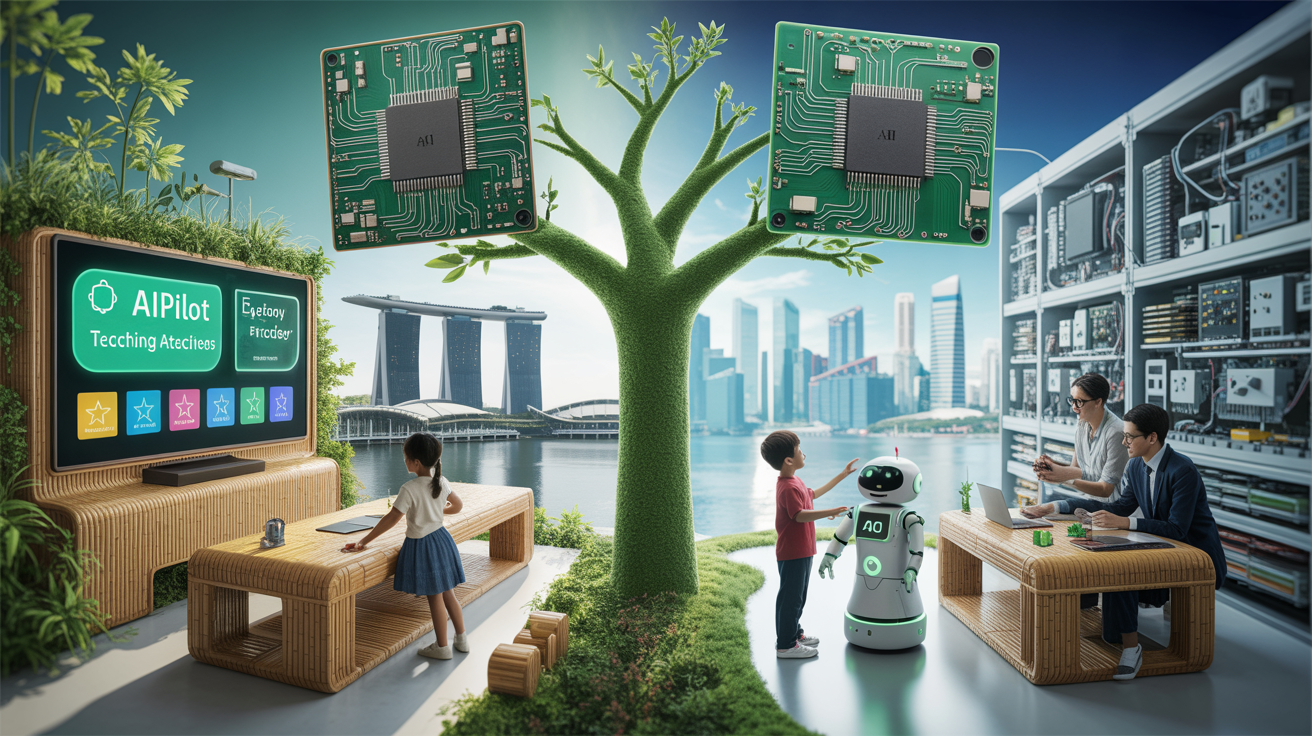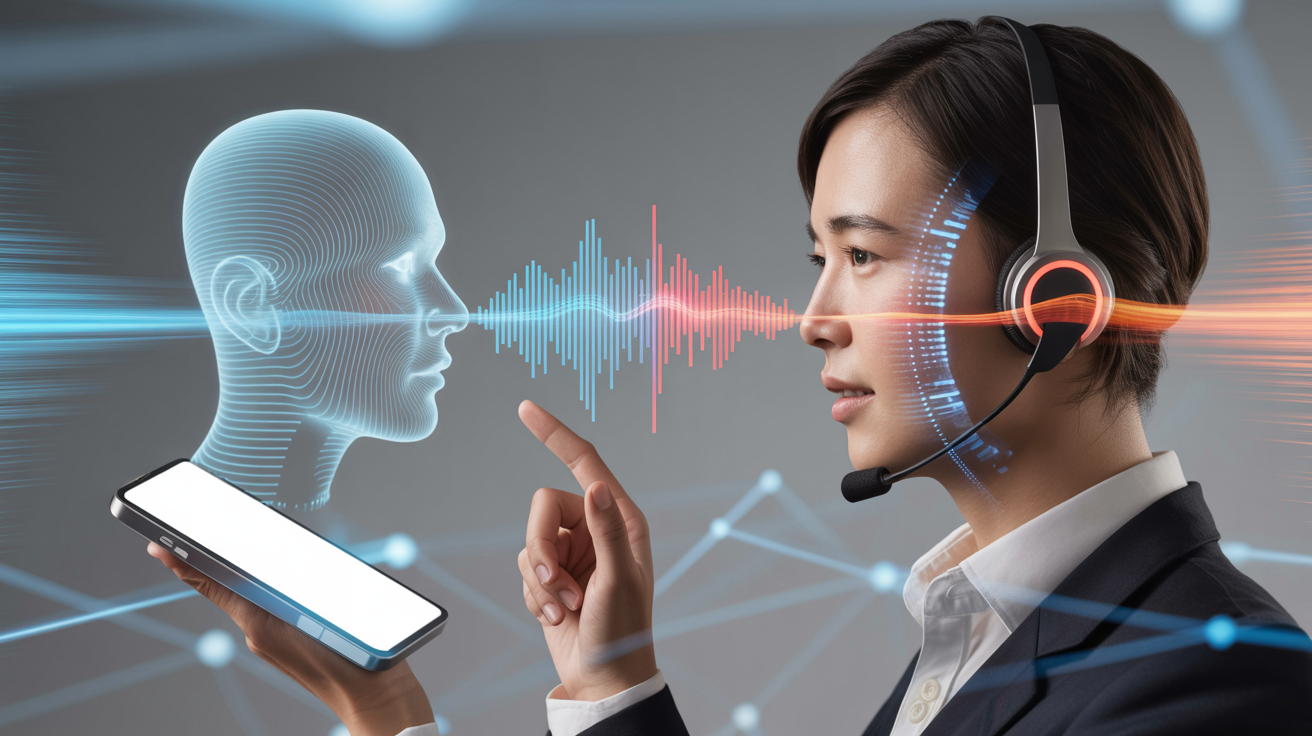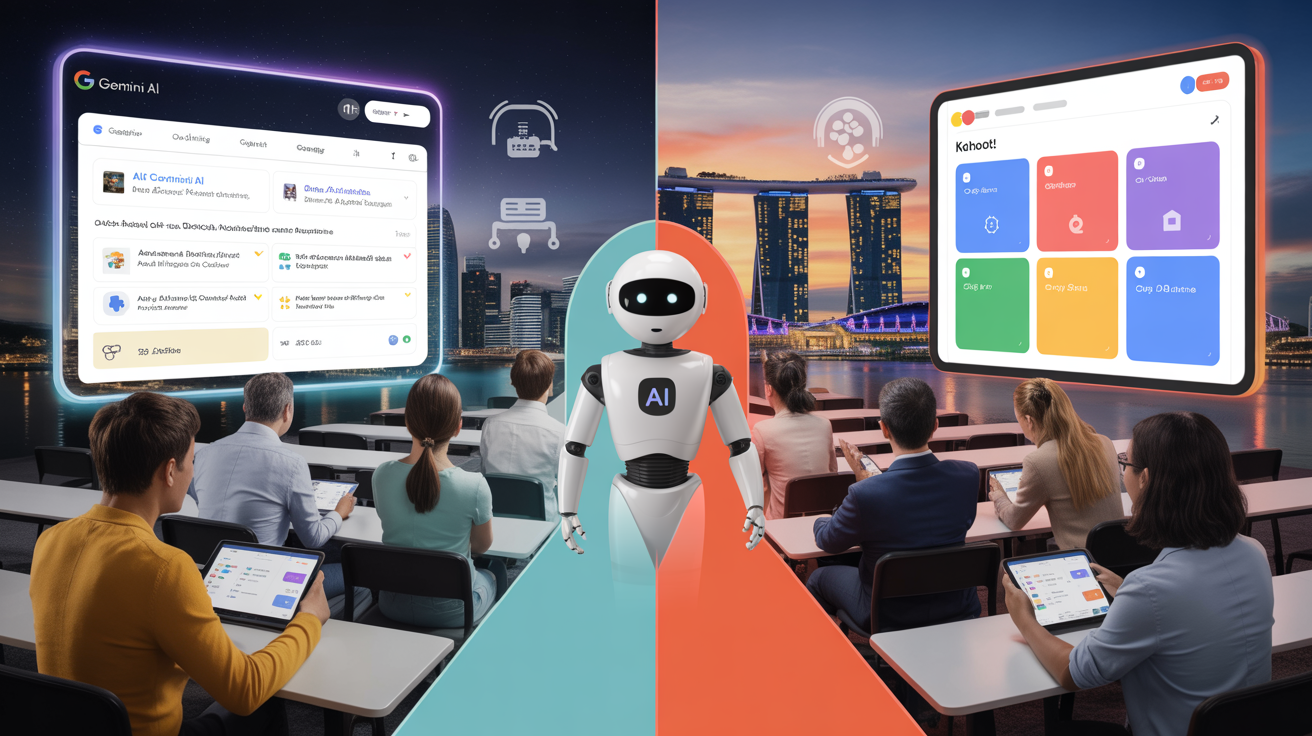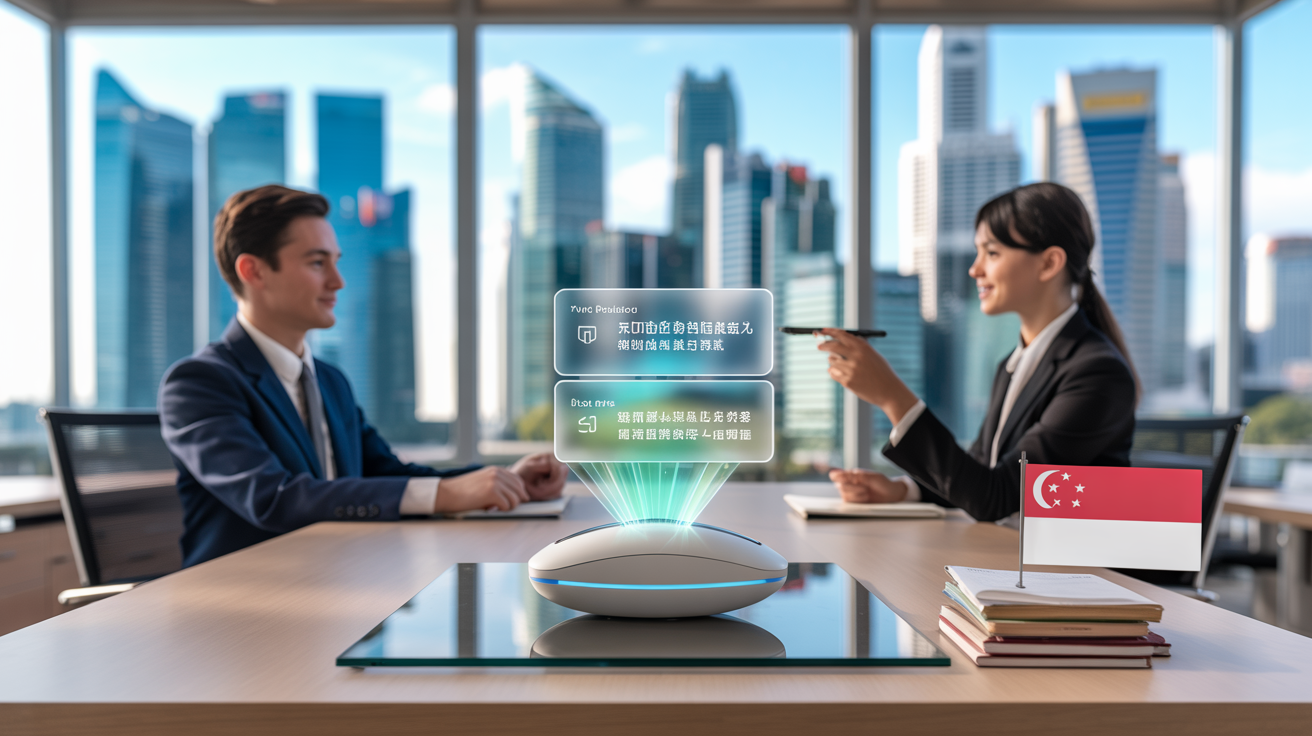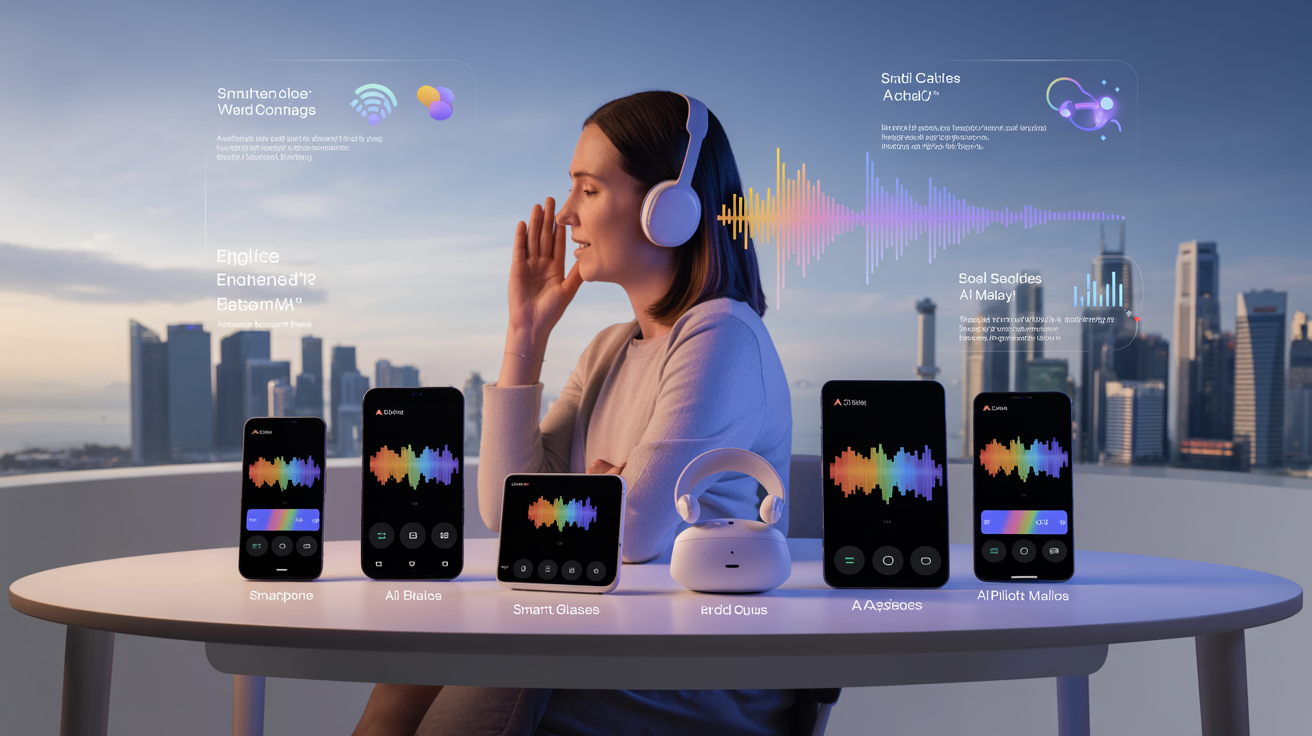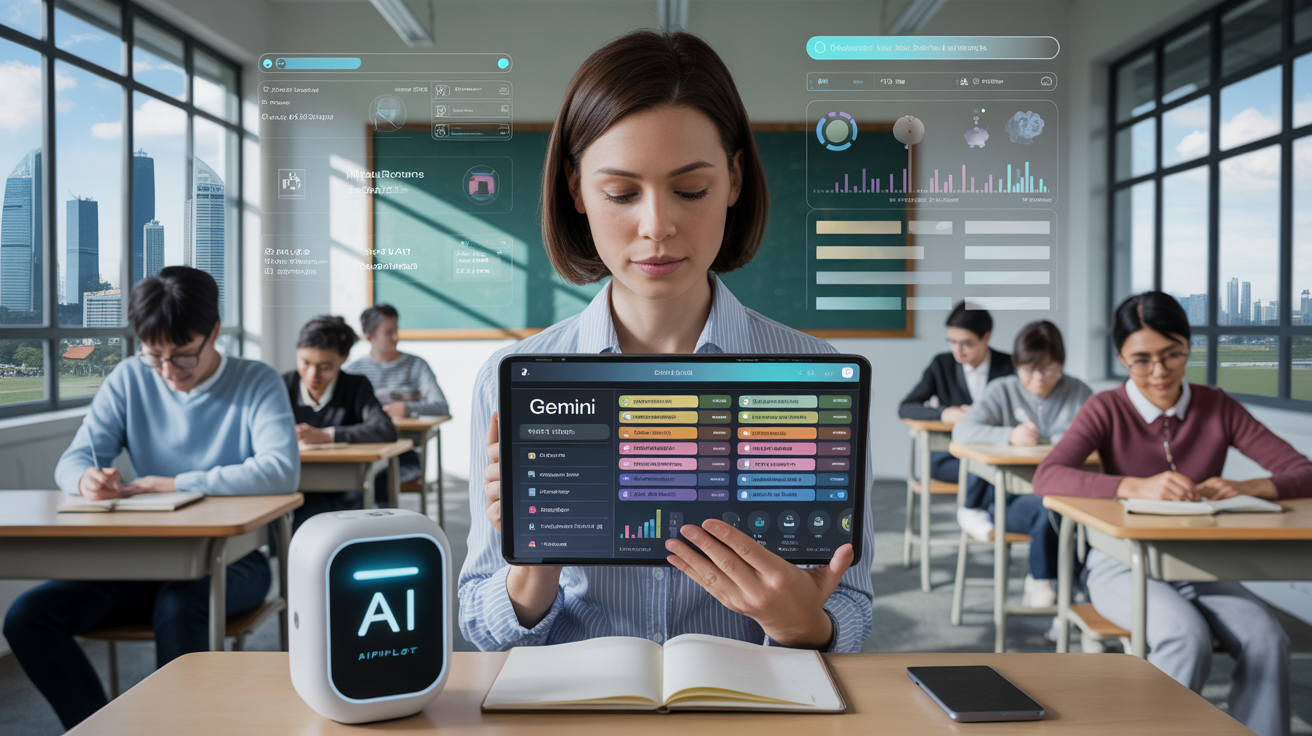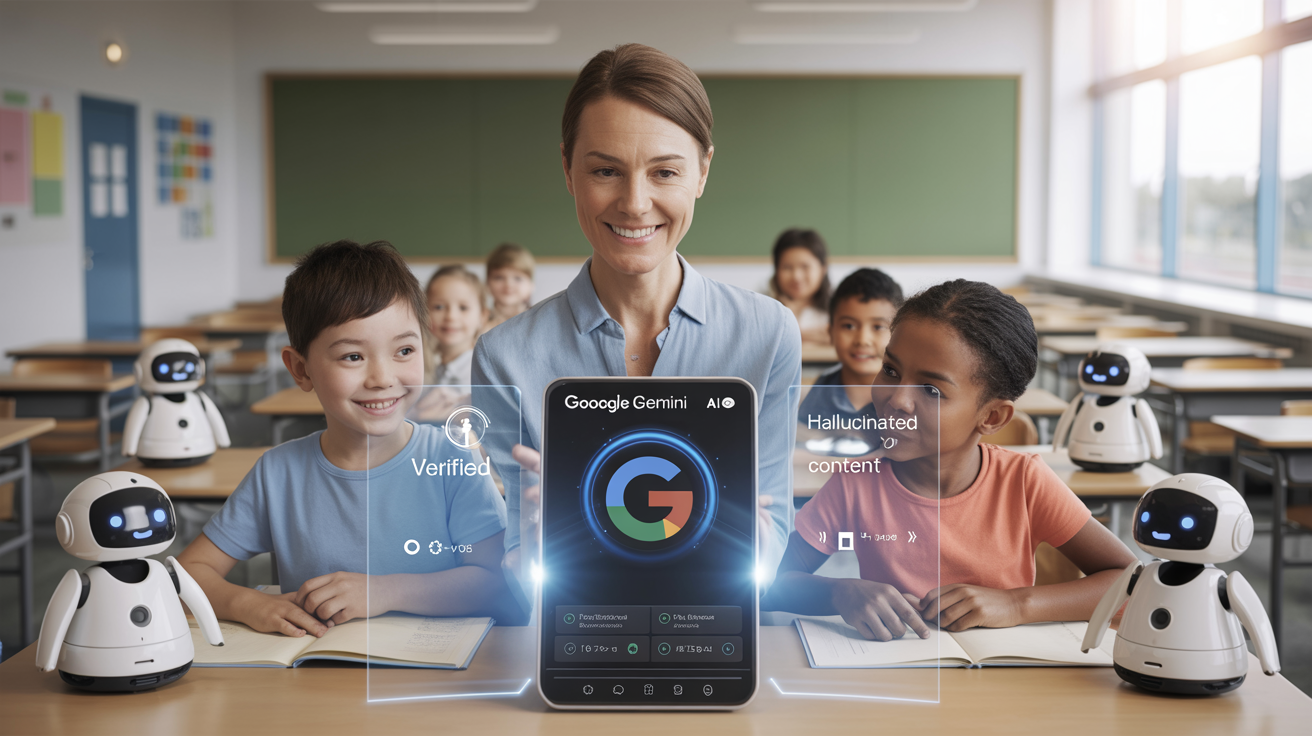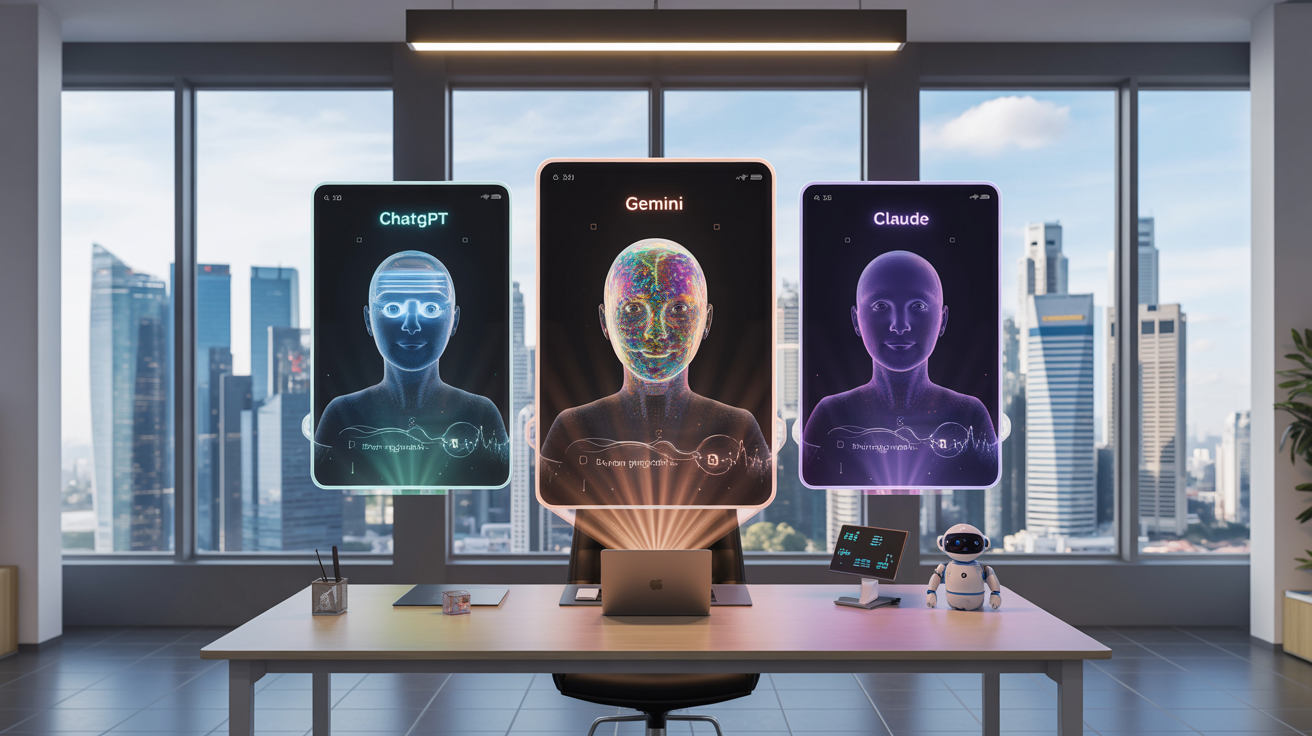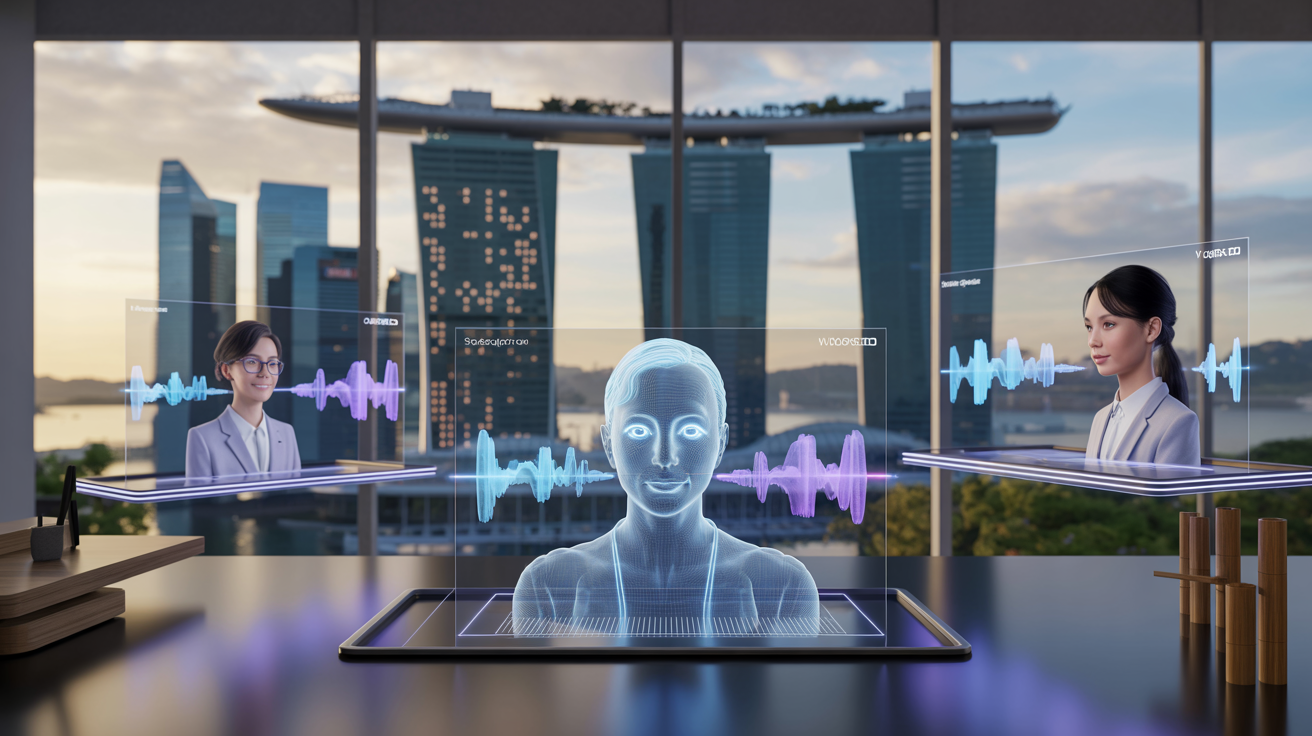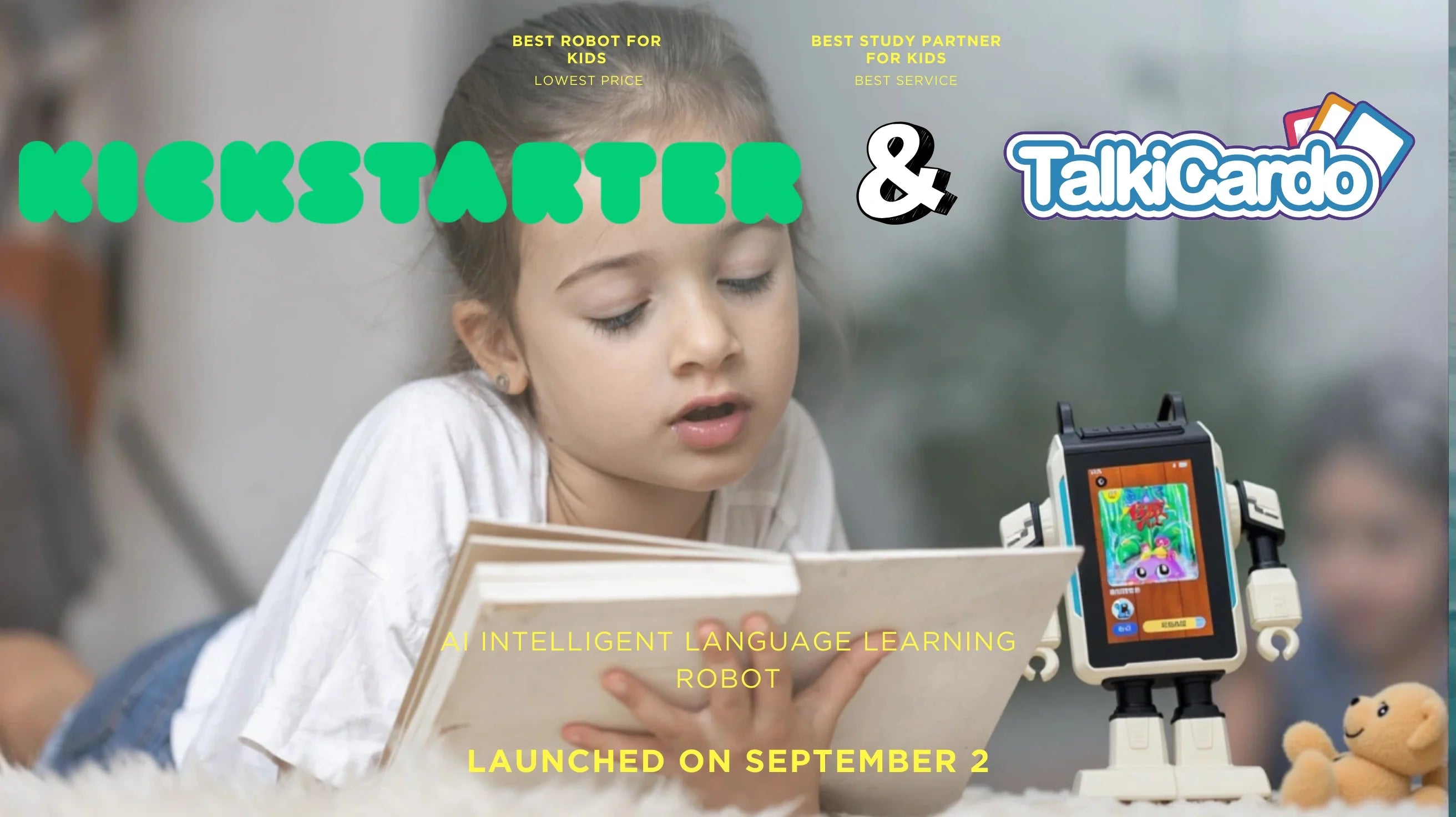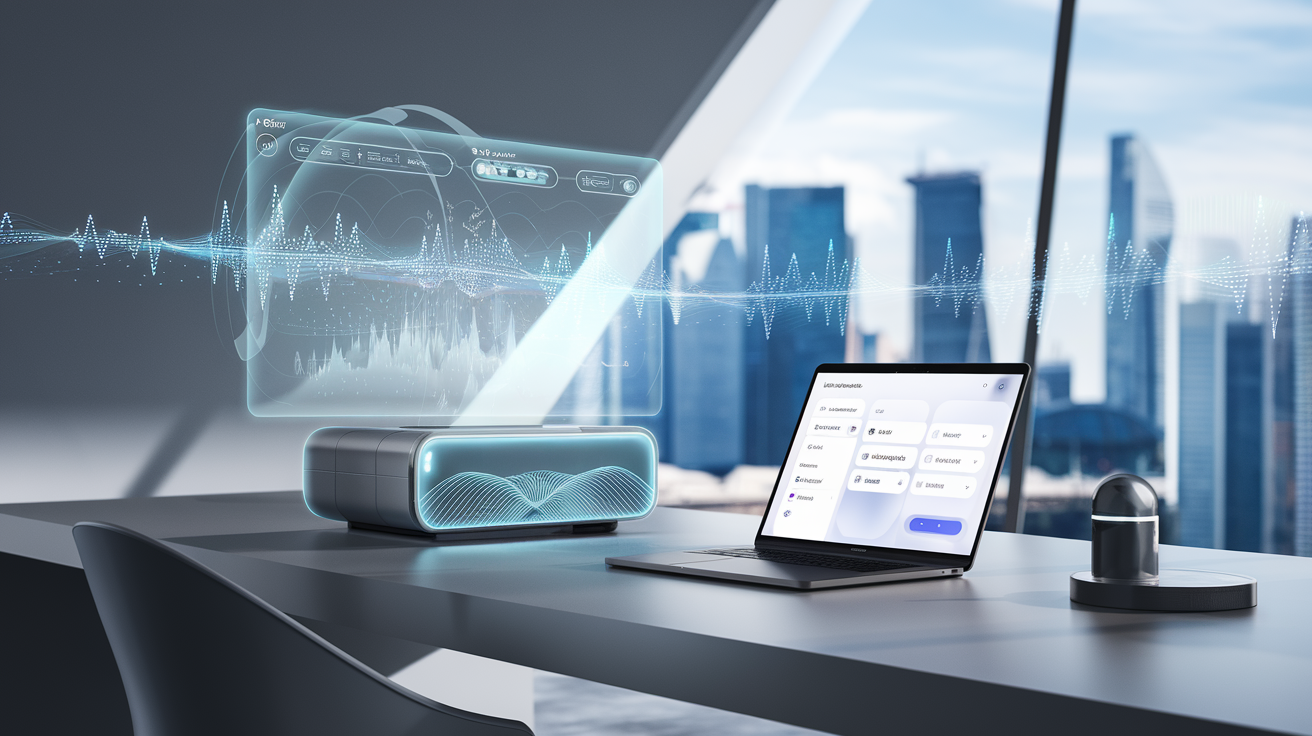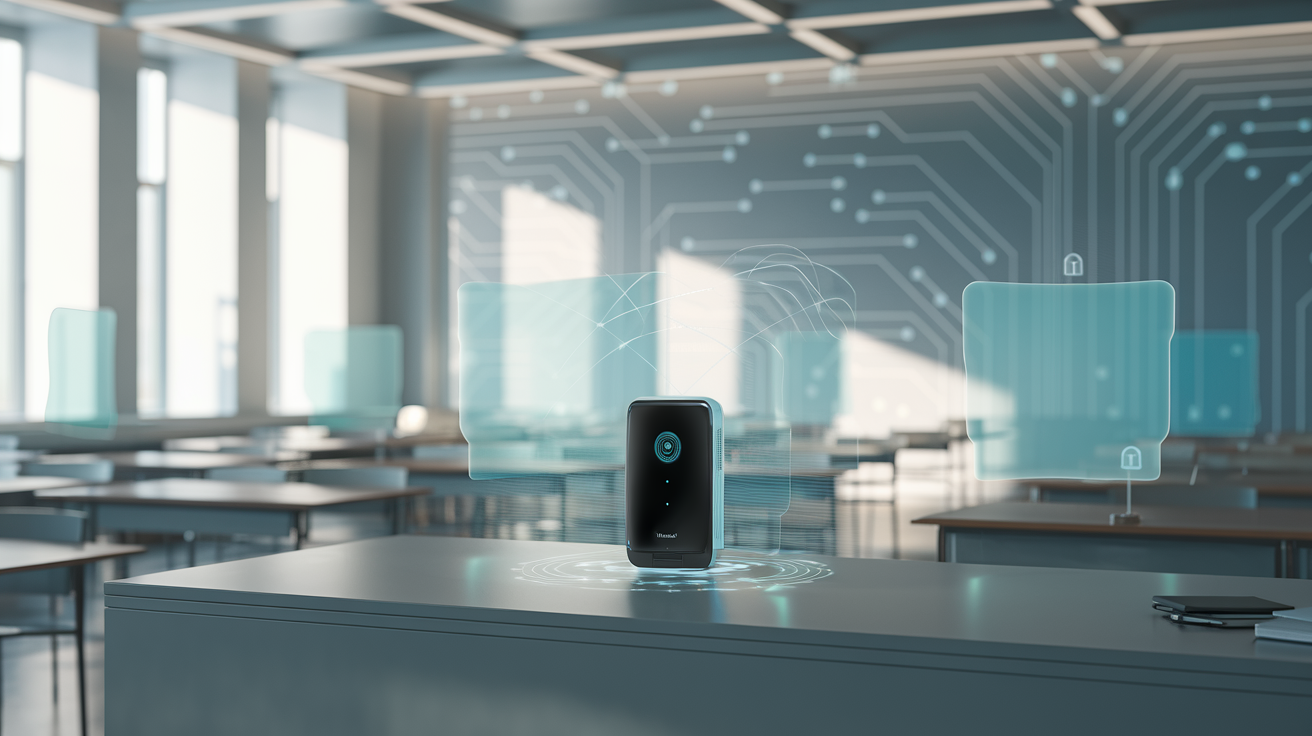
Ed-Tech Ethics: What PDPA Means for AI Voice Recording in Classrooms
Posted by Aipilot on
Table Of Contents
- Understanding PDPA in Singapore's Educational Context
- AI Voice Recording: Applications and Privacy Considerations
- Key PDPA Compliance Requirements for Educational Institutions
- Implementing Effective Consent Mechanisms
- Data Security Measures for Voice Recordings
- Protecting Student Rights Under PDPA
- Ethical Implementation Framework for AI Voice Technologies
- How AIPILOT Solutions Support PDPA Compliance
- Future Considerations and Evolving Regulations
As artificial intelligence transforms education across Singapore and beyond, AI-powered voice recording technologies are creating unprecedented opportunities for personalized learning, assessment, and classroom management. However, these innovations also raise critical questions about student privacy, data security, and regulatory compliance—particularly regarding Singapore's Personal Data Protection Act (PDPA).
Educational institutions implementing AI voice recording systems must navigate complex ethical and legal considerations to protect student data while maximizing the educational benefits these technologies offer. The collection, processing, and storage of student voice data present unique challenges that require careful attention to both compliance requirements and ethical best practices.
This article explores the intersection of PDPA regulations and AI voice recording technologies in educational settings, offering practical guidance for educators, administrators, and EdTech professionals seeking to implement these tools responsibly and lawfully. Understanding these requirements isn't just about avoiding penalties—it's about building trust with students and parents while establishing sustainable, ethical frameworks for AI integration in education.
PDPA Compliance for AI Voice Recording in Education
Essential Guidelines for Educational Technology Implementation
Singapore's Personal Data Protection Act (PDPA) establishes strict requirements for handling voice data in educational settings. This guide outlines key compliance strategies for ethical AI implementation.
Key PDPA Obligations
- Consent: Obtain informed consent before recording
- Purpose Limitation: Use data only for specified purposes
- Protection: Implement security safeguards
- Retention: Don't keep data longer than necessary
Data Security Requirements
- Encryption: For voice data in transit and at rest
- Access Controls: Role-based permissions only
- Minimization: Collect only necessary voice data
- Anonymization: Where educationally feasible
Student Rights
- Access: Request copies of voice recordings
- Correction: Fix inaccurate information
- Portability: Transfer data to other providers
- Withdrawal: Revoke consent at any time
5-Step Compliance Implementation
Appoint a Data Protection Officer
Designate responsibility for PDPA compliance coordination
Conduct Data Protection Impact Assessment
Identify and mitigate risks before implementation
Develop Consent Mechanisms
Create transparent, informed consent processes
Implement Security Protocols
Deploy encryption, access controls, and data protection
Establish Ethical Framework
Balance innovation with privacy, transparency, and fairness
Ethical Implementation Beyond Compliance
Transparency
Explain how AI voice systems work and influence assessments
Fairness
Prevent bias against different accents or speech patterns
Human Oversight
Maintain educator supervision over AI recommendations
Student Autonomy
Give students appropriate control over their voice data
AIPILOT Solutions for PDPA-Compliant Voice Technology
Privacy-by-Design
Architectural protections minimize data collection and enhance security
Consent Management
Customizable workflows document permissions for voice processing
Retention Controls
Automated tools enforce data lifecycle policies for compliance
Implementing AI voice recording in education requires balancing innovation with privacy protection. By following PDPA guidelines and ethical best practices, educational institutions can leverage these powerful technologies while safeguarding student data.
Understanding PDPA in Singapore's Educational Context
Singapore's Personal Data Protection Act (PDPA) establishes a comprehensive framework governing the collection, use, and disclosure of personal data across all sectors, including education. Enacted in 2012 and significantly updated in 2020, the PDPA aims to balance individuals' right to data protection with organizations' need to collect and use data for legitimate purposes.
In educational settings, the PDPA takes on particular significance as institutions increasingly adopt data-driven technologies. Voice recordings are explicitly considered personal data under the PDPA when they can be linked to an identifiable individual. This classification means that recordings of student voices captured during lessons, assessments, or practice sessions are subject to PDPA regulations.
The PDPA operates on several key principles that educational institutions must understand:
- Consent Obligation: Organizations must obtain informed consent before collecting, using, or disclosing personal data
- Purpose Limitation: Personal data may only be used for the specific purposes for which consent was given
- Notification Obligation: Individuals must be informed about the purposes for which their data will be used
- Access and Correction: Individuals have the right to access and correct their personal data
- Accuracy: Organizations must ensure that personal data is accurate and complete
- Protection: Reasonable security arrangements must be made to prevent unauthorized access or disclosure
- Retention Limitation: Personal data should not be retained longer than necessary
- Transfer Limitation: Personal data should not be transferred outside Singapore without adequate protection
Educational institutions deploying AI voice recording systems must ensure compliance with these principles or risk significant penalties, including fines of up to S$1 million under the enhanced provisions of the 2020 amendments.
AI Voice Recording: Applications and Privacy Considerations
AI-powered voice recording technologies offer transformative benefits for language learning, student assessment, and educational accessibility. These systems can provide personalized feedback on pronunciation, analyze speaking patterns to identify learning gaps, facilitate speech therapy interventions, and create inclusive learning environments for students with diverse needs.
AIPILOT's suite of educational tools exemplifies these capabilities. For instance, their TalkiCardo smart AI chat cards provide safe, efficient communication tools for children, while their AI Teaching Assistant can help educators deliver more personalized instruction through voice interaction capabilities.
However, these same technologies create significant privacy considerations that must be addressed:
Biometric Data Concerns: Voice patterns contain biometric identifiers that are unique to individuals and potentially sensitive. Under PDPA, biometric data requires heightened protection measures.
Secondary Use Risks: AI systems often improve through machine learning, creating potential tension between product improvement and purpose limitation principles if voice data is used to train algorithms.
Permanence and Reproducibility: Unlike written work, voice recordings capture personal elements like accents, speech patterns, and emotional indicators that are deeply personal and could be misused if accessed improperly.
Classroom Dynamics: Voice recording may impact authentic classroom participation if students feel self-conscious about being recorded, potentially undermining educational objectives.
Educational institutions must balance these privacy considerations with educational benefits, implementing appropriate safeguards to address valid concerns while still leveraging technology's potential to enhance learning outcomes.
Key PDPA Compliance Requirements for Educational Institutions
For educational institutions implementing AI voice recording technology, PDPA compliance involves several critical requirements:
Data Protection Officer Designation: Schools must appoint a DPO responsible for ensuring PDPA compliance throughout the organization. The DPO serves as the point of contact for data protection matters and coordinates compliance efforts across departments.
Data Protection Impact Assessment: Before implementing voice recording systems, institutions should conduct a DPIA to identify and mitigate potential privacy risks. This assessment should document the types of data collected, processing methods, security measures, retention periods, and potential vulnerabilities.
Clear Data Processing Policies: Institutions need documented policies outlining how voice data will be collected, stored, used, and eventually deleted. These policies should address who has access to recordings, what security measures protect them, and how long they'll be retained.
Vendor Management: If third-party AI providers like AIPILOT are engaged, educational institutions remain accountable for ensuring these vendors handle data in compliance with PDPA. This requires proper data processing agreements that clearly define responsibilities and limitations.
Staff Training: Teachers and administrators using AI voice recording systems must receive training on proper data handling procedures, consent requirements, and security protocols to prevent inadvertent violations.
Institutions should establish regular compliance reviews to assess and document their adherence to these requirements, making adjustments as needed to address emerging risks or regulatory changes.
Implementing Effective Consent Mechanisms
Obtaining valid consent is perhaps the most fundamental aspect of PDPA compliance when implementing AI voice recording in educational settings. For consent to be valid under PDPA, it must be:
Informed: Students and parents must understand what data is being collected, how it will be used, who will have access to it, and how long it will be retained.
Specific: Consent should be obtained for particular, well-defined purposes rather than general or open-ended uses.
Unambiguous: Consent should be given through clear affirmative action, not implied through silence or pre-checked boxes.
Freely Given: Students should not face negative consequences for declining consent, and alternatives should be available when possible.
For educational institutions, this means developing consent forms and processes that clearly explain all aspects of voice data collection and use in language appropriate for the age and comprehension level of students. For minors, particularly those under 13, parental consent is typically required, adding another layer to compliance efforts.
Effective consent mechanisms might include:
Layered Consent Notices: Providing both summary information and detailed explanations about data practices to ensure both accessibility and transparency.
Classroom Notifications: Visual indicators when recording is active, giving students awareness of when their voices are being captured.
Consent Dashboards: Digital tools allowing students and parents to view and manage their consent preferences over time.
Regular Renewal: Periodically refreshing consent, especially when data uses change or at the beginning of new academic periods.
Schools should document consent processes carefully, maintaining records of when and how consent was obtained for each student. This documentation proves essential if compliance is ever questioned or in the event of a data breach investigation.
Data Security Measures for Voice Recordings
Voice recordings represent sensitive personal data requiring robust security protections. Educational institutions must implement comprehensive technical and organizational measures to safeguard this information throughout its lifecycle.
Encryption Standards: Voice data should be encrypted both in transit and at rest using industry-standard encryption protocols. This ensures that even if unauthorized access occurs, the data remains unreadable without decryption keys.
Access Control: Strict role-based access controls should limit which staff members can access voice recordings. Authentication systems should verify user identities through strong password policies and, ideally, multi-factor authentication for sensitive data access.
Secure Storage Architecture: Voice data should be stored in secure environments with appropriate firewalls, intrusion detection systems, and regular security audits. Cloud storage solutions should be assessed for compliance with Singapore's data protection standards.
Data Minimization: Institutions should collect only the voice data necessary for specific educational purposes and avoid excessive or unnecessary recording. Technology settings should be configured to capture only relevant portions of speech rather than continuous recording.
Anonymization Where Possible: Where the educational purpose allows, voice data should be anonymized by removing personally identifiable information from recordings or metadata.
AIPILOT's technology solutions incorporate multiple security layers to help educational institutions maintain PDPA compliance. Their AI Mouse, for example, integrates voice control functionality with built-in security features designed to protect user privacy.
Regular security assessments and penetration testing should evaluate the effectiveness of these measures, identifying and addressing potential vulnerabilities before they can be exploited. Technology partners should provide transparent information about their security protocols and be willing to sign data protection addendums that formalize security commitments.
Protecting Student Rights Under PDPA
The PDPA grants several important rights to individuals regarding their personal data, which educational institutions must respect and facilitate when implementing AI voice recording systems:
Right to Access: Students and parents have the right to request access to voice recordings and associated data held about them. Schools must establish clear procedures for handling such requests, including verification processes to ensure data is only released to authorized individuals.
Right to Correction: If inaccuracies exist in personal data or metadata associated with voice recordings, students have the right to have this information corrected. This might apply to misattributed recordings or incorrect tags associated with voice samples.
Right to Data Portability: Under the 2020 PDPA amendments, individuals can request their data in a portable format that allows transfer to another service provider. For voice recordings, this may require providing files in standard audio formats with associated metadata.
Right to Withdraw Consent: Students must be able to withdraw previously given consent for ongoing or future voice recording. Schools need clear processes for handling such withdrawals and ensuring that no new recordings are made once consent is revoked.
Educational institutions should develop user-friendly mechanisms for students to exercise these rights, such as:
Self-Service Portals: Online interfaces where students or parents can view what voice data is held, request corrections, or download their information.
Trained Contact Personnel: Designated staff members who understand data protection requirements and can assist students in exercising their rights.
Clear Timeline Commitments: Established response periods for handling access requests or correction submissions, typically within 30 days as recommended under PDPA guidelines.
By respecting and facilitating these rights, educational institutions not only maintain legal compliance but also build trust with students and parents regarding the handling of sensitive voice data.
Ethical Implementation Framework for AI Voice Technologies
Beyond legal compliance, educational institutions must consider broader ethical dimensions when implementing AI voice recording technologies. An ethical framework should address considerations beyond minimum regulatory requirements, focusing on student well-being and educational integrity.
Key components of an ethical implementation framework include:
Transparency: Institutions should be fully transparent about how AI voice systems work, what they capture, and how recordings influence educational assessments or interventions. This includes explaining algorithms in accessible language and acknowledging limitations of the technology.
Fairness and Non-discrimination: Voice recognition technologies must be evaluated for potential bias against certain accents, speech patterns, or linguistic backgrounds. Regular auditing should identify and address any disparate impacts on student groups.
Proportionality: The extent of voice recording should be proportional to educational objectives. Continuous or excessive recording that creates surveillance-like environments should be avoided in favor of targeted, purpose-specific recording sessions.
Human Oversight: While AI can analyze voice data automatically, human educators should maintain supervision over how results are interpreted and applied. AI should augment rather than replace human judgment in educational settings.
Student Autonomy: Students should maintain agency in how their voice is recorded and used, with age-appropriate options for controlling their data and understanding its applications.
AIPILOT's TalkiTrans system demonstrates ethical implementation by providing simultaneous interpretation with clear indicators when translation is active, maintaining transparency about how voice data is processed during meetings or classroom sessions.
Educational institutions should establish ethics committees or review boards to evaluate AI voice technologies before implementation, considering both technical capabilities and alignment with institutional values. These committees should include diverse stakeholders, including student representatives where age-appropriate, to ensure balanced consideration of different perspectives.
How AIPILOT Solutions Support PDPA Compliance
AIPILOT's suite of educational AI technologies has been designed with privacy and regulatory compliance as core principles, offering features that help educational institutions meet their PDPA obligations while delivering innovative learning experiences.
The company's AI-powered tools incorporate several compliance-enhancing capabilities:
Privacy-by-Design Architecture: AIPILOT products like the TalkiCardo smart AI chat cards integrate privacy protections at the architectural level, minimizing data collection to only what's necessary for educational functions and incorporating strong encryption standards.
Configurable Consent Management: The platform includes customizable consent workflows that educational institutions can adapt to their specific circumstances, helping schools document and manage student and parental permissions for voice data processing.
Transparent Data Processing: AIPILOT's systems provide clear visibility into how voice data is used, with administrative dashboards that show processing activities and data flows, supporting the transparency obligations under PDPA.
Localized Data Processing: Where possible, AIPILOT's technologies process voice data locally rather than transmitting it to external servers, reducing transfer risks and supporting data sovereignty requirements.
Automated Retention Management: The platform includes tools for setting and enforcing data retention policies, automatically archiving or deleting voice recordings after predetermined periods to comply with retention limitation principles.
The AI Teaching Assistant exemplifies these compliance capabilities, providing educators with powerful voice-enabled tools while maintaining strict data protection standards through selective recording activation and clear processing indicators.
By partnering with AIPILOT, educational institutions gain not only cutting-edge AI voice technologies but also built-in compliance features that reduce administrative burden and minimize regulatory risk. The company's focus on ethical AI development aligns with educational values of student privacy and data protection.
Future Considerations and Evolving Regulations
The regulatory landscape governing AI voice technologies in education continues to evolve, requiring educational institutions to remain vigilant and adaptable. Several emerging trends will likely shape future compliance requirements:
AI-Specific Regulations: Singapore is developing its AI governance framework, which may introduce additional requirements specific to AI systems that process voice data. Educational institutions should monitor these developments to ensure continued compliance.
Cross-Border Data Considerations: As educational technology becomes increasingly global, institutions must navigate complex rules around international data transfers, particularly if voice recordings might be processed outside Singapore.
Enhanced Individual Rights: Future PDPA amendments may strengthen individual control over personal data, potentially including rights to explanation of automated decisions based on voice analysis or enhanced restrictions on algorithmic profiling.
Standards Harmonization: Efforts to align Singapore's data protection framework with international standards like GDPR may introduce new compliance dimensions, particularly for educational institutions with international students or partnerships.
To prepare for these evolving requirements, educational institutions should:
Develop Compliance Roadmaps: Create forward-looking plans that anticipate regulatory changes and build adaptable data governance frameworks.
Engage in Policy Discussions: Participate in consultations and dialogues around AI governance to ensure educational perspectives are represented in regulatory development.
Foster Privacy Culture: Build organizational cultures that value privacy and data protection beyond minimum compliance, making ethical data handling a core institutional value.
Invest in Adaptable Technology: Choose technology partners like AIPILOT that demonstrate commitment to evolving their solutions as regulatory requirements change.
By taking a proactive stance toward emerging regulations, educational institutions can continue to leverage innovative AI voice technologies while maintaining robust privacy protections and regulatory compliance.
Navigating PDPA requirements for AI voice recording in educational settings presents significant challenges, but with appropriate planning and implementation, these technologies can be deployed both lawfully and ethically. The key lies in balancing innovative educational applications with rigorous privacy protections and regulatory compliance.
Educational institutions must develop comprehensive approaches that address not only technical compliance aspects—such as consent mechanisms, security measures, and data rights facilitation—but also broader ethical considerations around fairness, transparency, and student autonomy. By implementing robust governance frameworks and choosing technology partners committed to privacy-by-design principles, schools can mitigate risks while maximizing educational benefits.
PDPA compliance should be viewed not as a barrier but as an opportunity to establish thoughtful, sustainable approaches to AI integration that respect student privacy while advancing educational objectives. As regulations continue to evolve, maintaining adaptable governance frameworks will ensure that educational institutions can continue to leverage voice technologies confidently and responsibly.
The future of AI in education depends on establishing trust with students, parents, and regulators. By demonstrating commitment to ethical data practices today, educational institutions can help shape a positive trajectory for technology adoption that supports better learning outcomes while respecting fundamental privacy rights.
Discover how AIPILOT's innovative AI solutions can transform your educational institution while maintaining PDPA compliance and protecting student privacy. Visit AIPILOT today to learn more about our comprehensive AI-powered learning tools designed with privacy and compliance at their core.













